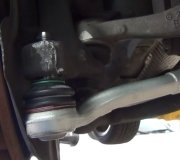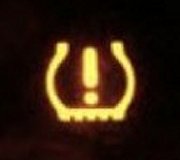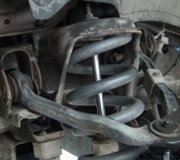Got it. I will never defend an unscrupulous mechanic or repair shop, but the 95 percent good ones get a bad reputation from that five percent. I also worked for 30 years for an extremely honest and reputable tv repair shop, and I worked a few years for the state's biggest rip-off artist. Got to learn a lot of bad practices to warn people about. I know you didn't ask, but here's a copy of a reply I posted a while back for someone with a Honda that needed exhaust work. They assumed one shop was trying to rip them off because the estimate was higher than another shop's. They were also new to the area. You might be able to pick out a few useful tidbits of information from it:
Every profession has its share of dishonest people. Mechanics are no worse than accountants, doctors, salespeople, carpenters, and politicians. Well, maybe all politicians are honest, but mechanics very often get a bad rap due to poor communication. Owners don't know much about the cars they trust to get them back home. It's one of the big reasons the manufacturers are still able to sell their insanely over-technologized products. If you knew half of the stuff we deal with today, you'd be driving a 23 year old minivan like I am.
Mechanics are real good at explaining problems to other mechanics. They don't do a good job of explaining them to owners. Add a service adviser who has good communication skills but knows little about cars, and ask him to translate between the mechanic and owner and it's easy to see how things get mixed up. It's just like asking a nurse to explain what the doctor said.
The next problem is there are a couple of different ways to fix your car. One mechanic might want to install a universal catalytic converter to save you money but it will require fabricating it to fit the system. That will take a lot of extra time. A different mechanic might want to install a factory-supplied part. It will cost a lot more but will take much less time to install. If you only look at the cost of the part, you're going to assume the second mechanic is dishonest. Both have legitimate reasons for doing the job they way they prefer.
You also have to look at the quality of the parts. The original stainless steel muffler on my '88 Grand Caravan lasted 19 years. A dealer replacement would have cost around $100.00. Instead, the next two replacements cost 20 bucks a piece but each lasted just under two years. Saved a few bucks but now I'm going to have to crawl in the dirt to replace it again. What did I gain?
Your mechanic has to weigh the life expectancy of the part compared to the life expectancy of your car or how long you plan on keeping it, his customizing and fabricating skills vs. How many other jobs will be backed up and waiting, any legal ramifications of modifying a safety system, and the legal issues related to tail pipe emissions.
All that aside, ask coworkers and friends for recommendations. In general, Honda dealers are relatively low pressure and reliable, ... The exact opposite of GM dealers. GM and their dealers make the bulk of their profits from over-priced repairs. Import manufacturers make their profits from selling cars. They rely on their good reputation for low-cost and infrequent repairs.
Independent shops can have a wide range of hourly labor rates but often the higher-priced shops have more experienced mechanics who get the job done in less time and they do it right the first time. Lower-priced shops often employ younger people with less advanced training and who've made less of an investment in specialized tools. They will take longer which might not be a problem if you can leave the car all day. Lower cost mechanics have less experience, but they can be just as conscientious as their seasoned counterparts.
Most shops use the "flat rate" system. That is a book that spells out exactly how long each procedure should take on your specific model and engine size. They will charge you the number of hours listed regardless of how long the work actually takes. An experienced mechanic will get done faster and earn more money per day. An inexperienced mechanic with few special tools will take longer and earn less per day, but if he hurries and makes a mistake, he has to correct it at no additional cost to you or pay for him. That's the checks and balances. The downside is you might have to bring the car back a second time. To some people that's a bigger deal than the cost. After all, mechanics are held to WAY higher standards than are doctors. We keep going from doctor to doctor looking for answers, and we keep paying the bills, but heaven forbid a mechanic makes a mistake. "Surely that shop can't be trusted" is the typical outcome.
To clarify "flat rate", dentists, body shops, and hair stylists typically use that system. You pay a set price for a root canal regardless if it takes an hour or all day. Imagine if you agreed to pay a kid ten bucks to cut your lawn. He could take all day with a scissors and earn ten bucks. If he uses a push mower, he can do two lawns in one day and earn twice as much. That's where a mechanic's investment in tools and advanced training pays off. If that kid invests in a riding mower, ... Or some goats, he can do a lot of lawns each day. You're still paying him just ten dollars. Flat rate allows all shops to calculate a reasonable and competitive estimate that is fair to the shop and the car owner.
Look for a shop that is busy with customer cars, not trade-in or used cars they're working on for a new-car dealership. A number of people sitting in the waiting room is a good sign. If you hear a customer talking about a certain mechanic by his first name, that's a plus too. Ask about exactly what work will be done, the kind of parts used, and their labor warranty. Here in Wisconsin we are entitled to a written estimate so it's easy to compare one shop to another. It can still be hard for owners to make judgements between the parts used. You can go to a fast food joint or a fancy steak house. You'll get full at both but they won't be serving you the same product. To get an idea of the range of parts cost, I use rockauto. Com. Be aware you're going to be charged roughly twice the cost you find there. The mail order price, (plus shipping), assumes you're going to install it yourself. All businesses mark up the cost of parts to cover the cost of someone delivering it or picking it up, cost of tying up money in inventory that just sits on the shelf, cost of replacing the part again if it's defective or damaged, etc. I would expect a new converter to cost around $500.00. If it has bolt-on flanges, front and rear, expect to be charged for new bolts and nuts, which will be quite insignificant, but that style can be replaced in way under an hour. Clamped on converters take longer to peel off the pipes and fit back on so the job will take longer. Two new clamps will be required. Some shops absorb the hardware into their labor rates. It's also rather rare to find no other parts need to be replaced so don't be too surprised if you're told you need more than just the converter. It depends to on the reason it's needed. If it just isn't functioning properly, you might get by with just the new converter. If it's rusted and leaking, expect other pipes to be just as rusty.
Most states also require you to be given the opportunity to sign the repair order stating "you want an estimate before any work is done", "you don't want an estimate; just fix it", or "you want an estimate if the price goes over $xxx. Xx amount. For us, the last one is the most common. The first choice means they have to give you an estimate before even allowing a mechanic to look at the car, (or he is looking at it for no charge). The dealership I worked for didn't care for the second choice because it often left customers surprised when they came to pick up their car and pay the bill. Most people opt for the third choice after they know the estimated cost. The problem is sometimes the job is 90 percent done before the mechanic realizes the final cost is going to be higher. In that case someone has to call you to approve the additional charges or the mechanic has to do part of the work for free. Many of them will do that just to get the job done, but when more parts are needed than originally expected, you can expect to receive an updated estimate. That happens so often with strut replacement and exhaust work that many shops plan ahead and give you an estimate higher than what they expect the final bill to be. They hate calling with revised estimates once, and they REALLY hate doing it a second time.
Some people use the Better Business Bureau but I'm not a fan of them. All they track are complaints. There is no mention of the happy customers or what percentage makes up each group. Every business is going to have complaints lodged against them because there are some people who simply refuse to be satisfied. From watching how complaints were handled as a customer, mechanic, salesperson, and casual observer at competitors shops, in my opinion the customers' expectations were way out of line about half of the time, poor communication was involved half of the time, and outright fraud or deception could be found about ten percent of the time, ... Until I got the whole story. As a former instructor, I was often asked my opinion on a repair bill. Having students working at the shop involved gave me the opportunity to learn the shop's side of the story. In almost all cases the charges could be explained to a reasonable person. There are a lot of quality repair shops in my city and the blatantly dishonest ones don't last more than a few months, then their employees have trouble finding work at reputable shops. The industry kind of polices itself in that regard.
I know I didn't really answer your question about cost but it sounds like you're more concerned with finding a good shop. You might try talking with the people at a shop you like before you commit to bringing your car in. Some people will give you a little more attention when they know you're going to be a repeat customer. They also know word-of-mouth advertising is extremely important and they'll work just a little harder to keep you happy.
Many of the national chain franchise shops do one thing, like exhaust work or brakes, and they have to pull in as much of that work as possible to remain profitable. One in particular in my town is noted for grossly over-selling brake repairs. At the dealership I worked for across the road, I was often asked to inspect a brake system and provide a second estimate. We regularly did for less than $200.00 what the chain wanted to charge over $600.00. In order to receive that "lifetime warranty" on the $30.00 set of brake pads, they insisted on selling calipers, hoses, wheel cylinders, and lots of other services that weren't needed and were not included in that high-priced warranty. Found out later that the person who greeted you at the counter was the next person in line to be service adviser, salesman, mechanic, and cashier for your car, and he was paid on commission... So of course it was in his best interest to sell you everything. There was no reason to doubt the quality of the work, but like that one tv shop I worked for, they want to make as much profit as possible on your first visit because they aren't counting on you coming back again. Better shops cultivate repeat, happy customers.
So Dan300, I hope that gives you a little help on finding a shop you like. Remember too to not base your entire judgement on one bad visit. We had a really fine fellow who owned an import dealership in town. He was too nice to be in the business because he took every little complaint personally and went overboard to resolve them, but he had one employee who pulled some stuff until he was caught and reprimanded. It wasn't REAL serious but it certainly went against that owner's business practices and the way he wanted his customers treated. Had that become publicly known, it would have been just another black eye on the industry. Now that dealership is owned by a less-than-reputable guy known in the community from his other dealerships to be not the first one you'd care to deal with. We have two other GM dealerships and two Chrysler dealerships with stellar reputations, along with other import dealers I'm not real familiar with but have not heard anything bad about. Nevertheless, be aware there are some things dictated by the manufacturers that are out of the control of the people behind the desk. I can get more specific if the need should arise, but mostly that has to do with warranty repair policies for new cars. Good service advisers will take the time to explain shop policies to you and the reason for them as long as they aren't busy with other customers. It's part of their job. Little one and two-man independent shops get to make their rules on a day-by-day basis but that means they can also break their rules to help you out.
The bottom line is to try to establish a relationship with a shop where you feel comfortable with the people you're talking with, and to think of them as an advocate, not an adversary. If you appear to trust their judgement, they are typically going to work a little harder to deserve that trust.
SPONSORED LINKS
Tuesday, May 1st, 2012 AT 3:57 AM



